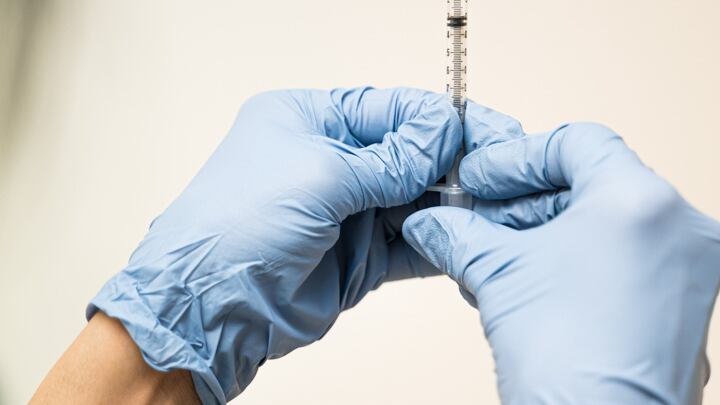WW presents "Distant Voices," a daily video interview for the era of social distancing. Our reporters are asking Portlanders what they're doing during quarantine.
How eager are some Portland-area residents for a COVID-19 vaccine? Some 13,000 of them volunteered to test one, even knowing there was a 33% chance they'd receive a placebo.
The vaccine in question is the third in development: It's still being tested across the country by the pharmaceutical company AstraZeneca, after vaccines from Pfizer and Moderna were approved by federal regulators. Among the study sites: Oregon Health & Science University, where Dr. Marcel Curlin is leading the trial.
Curlin says the demand to participate in the study exceeded his expectations. "I knew we were going to have a lot of people interested, just because of the kind of place Oregon is," he says. "I think we have a lot of publicly minded people. But I was not really prepared for the size of the response, which I think surprised everybody."
One result of the large turnout? More than half the people enrolled in the trial are people of color—a striking change from this summer, when OHSU ended a study of COVID-19 impacts because it couldn't recruit enough people from the BIPOC groups hit hardest by the virus.
In this interview, Curlin talks about the big questions surrounding OHSU's vaccine trial—including side effects and whether AstraZeneca's vaccine deserves the bad reputation already affixed to it.
He also reveals that his office is separated by one wall from the most enviable queue in Oregon: the line of health care workers waiting to receive their first dose of a vaccine that's been approved. What's that scene like? He explains.
Correction: This post incorrectly stated that 50% percent of trial participants receive a placebo. In fact, 66% receive the vaccine and 33% receive a placebo. WW regrets the error.

